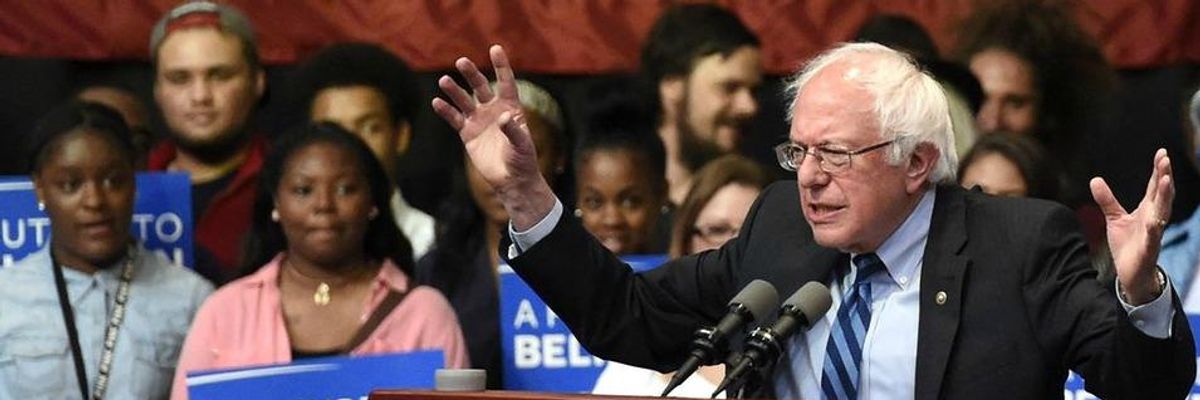Here are five immediate repercussions to Ted Cruz dropping out of the Republican primary:
1. News coverage for the Democratic primary, and thus Bernie Sanders, will increase exponentially -- immediately.
Without Trump in the field, all of the focus on future election nights -- nine states and several territories over the next 45 days -- will be on Bernie Sanders and Hillary Clinton.
2. Sanders will pick up a huge number of what would otherwise be Trump votes in states where voters are still able to register for upcoming Democratic primaries, or are able to cross over and vote in the Democratic primary due to being a registered independent.
Sanders' vote share in nearly every upcoming primary and caucus just increased, though we don't know by how much. In some instances, it could be a substantial bump, given that there's no strategic reason to cast a vote for Donald Trump anymore -- now that the Republican National Committee has officially declared him the presumptive nominee and a John Kasich dropout is likely imminent.
3. Clinton will have to start spending a great deal of money to fight a two-front war against Donald Trump, who'll begin his ultra-negative primary campaign against Clinton immediately, and Bernie Sanders, who will avoid attacking Clinton directly but has nevertheless vowed to take the Democratic primary to the Democratic National Convention in Philadelphia.
This is the worst imaginable scenario for Clinton, as her negatives have always gone up when she's in the midst of a campaign -- and now she's in the middle of two at once. With Clinton's attention divided, her ability to respond to any Bernie Sanders surge in upcoming states will be limited.
4. Sanders now has a greatly increased chance of winning all of the remaining Democratic primaries and caucuses.
Sanders was already looking strong in Oregon, West Virginia, Montana, South Dakota, Kentucky, North Dakota, and California, but given that he's within single digits in New Jersey (where Trump is very popular) and performed incredibly well with nonwhite voters in Indiana (meaning New Mexico could be in play), it's not unthinkable that Hillary Clinton could lose all of the remaining primaries and caucuses and therefore as many as thirteen or fourteen contests in a row to finish the Democratic primary season.
This would send Clinton to Philly a deeply wounded front-runner, even if she maintains a strong (but much diminished) delegate lead over Sanders. So there's a chance that Clinton will go to Philly with a delegate lead but also having lost 22 or 23 of the final 30 contests in the Democratic primary.
If that happens, it's tough to say how super-delegates will view a Clinton candidacy, especially now that the latest national polling (Rasmussen) already has her down by two points to Trump.
5. The Democrats will have a contested convention, and the Republicans won't.
Few saw this coming, but assuming Bernie Sanders maintains his pledge to contest the Democratic convention unless Clinton can get 2,383 pledged delegates by June 14th -- which she can't, barring a miracle -- only one of the two major parties will go to their convention divided, and with (not for nothing) the sort of logistical hurdles that come with that. For instance, when does Clinton roll out a Vice Presidential candidate? Before a convention she knows will be contested? At a time when a few super-delegates might abandon her?
The larger question: do some quantity of super-delegates switch to Sanders if the possibilities explored in items #1 through #4 above -- particularly with respect to the upcoming primaries and caucuses -- come to pass?
All we know for sure is that Ted Cruz dropping out of the Republican race has changed the Democratic race almost as profoundly as the Republican one.


